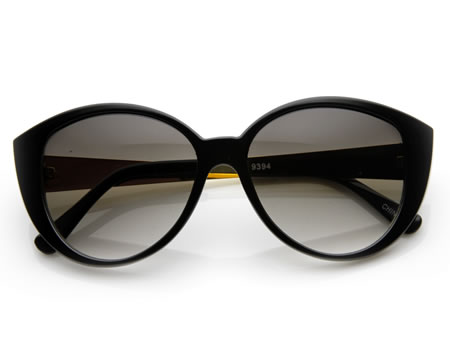Many people believe that wearing glasses worsens eyesight. But are they right? SADE OGUNTOLA, in this report, takes a clear look at the evidence.
MYTHS and misconceptions about vision and eye health are many and preventing people from receiving care that could help improve their vision. Although, poor vision tends to happen gradually, people adjust and refrain from seeking help, even when services are available.Misconception such like vision is just a health problem and doesn’t affect other development issues, vision impairment is a divine punishment, sitting too close to the TV will ruin your eyes and glasses make eyesight worse still abound.
Poor eyesight is a term that does not describe a single condition. There are dozens of different problems of the eyes that might lead to poor vision. This includes crossed eyes or a lazy eye, myopia (nearsightedness), hyperopia (farsightedness) and astigmatism.
Other conditions can also cause low vision such as pregnancy, migraines, age-related macular degeneration, diabetes and glaucoma.
Prescription glasses can correct many different vision problems, such as nearsightedness and farsightedness. It is designed specifically to correct a specific condition in the eye.
But the notion that eyeglasses can cause poor vision or worsen vision, Dr Fasina, a consultant ophthalmologist, University College Hospital (UCH), Ibadan, said is not true.
Moreover, few trials have been conducted on the prolonged effect of wearing glasses and there’s no persuasive evidence that wearing reading glasses affects eyesight.
Anecdotally, many people become convinced that glasses have made their eyesight worse because they had gradually found themselves more and more dependent on their glasses. And as such, many parents are hesitant allowing their children to wear glasses, even when there are obvious signs of poor vision.
In fact, a study in 2013 to determine the attitude and beliefs of Nigerian undergraduates to spectacle wear found 64 per cent of students believed that wearing glasses can damage eyes. It involved Dr Jennifer Aleye Ebeigbe and others at the University of Benin.
This study, published in the Ghana Medical Journal, indicated that 65 per cent of these students did not know that eyeglasses could be used to relieve other forms of eye discomfort like headache and tearing.
Such a belief as this is not only in Nigeria. Research in the Indian state of Karnataka put the figure of those that believe that wearing glasses can damage eyes at 30 per cent and in Pakistan 69 per cent of people feel the same way.
In Brazil, even medical staff believed that the eyes would gradually get weaker as a consequence of wearing glasses.
Howbeit, Dr Fasina said that the thinking that eyeglasses had worsened their eyesight is understandable because many adults who started with low power lenses now wear high power lenses.
However, this, he said, does not justify the thinking that eyeglasses also make a child’s sight become poor or worsened. Just as some glasses aid ability to see, some correct defects in the eyes.
According to Dr Fasina: “When an adult gets to a certain age, he requires glasses, either to read or to see the far distance, to be okay. But any time he now removes the glasses, the eyes go back to the pre-correction status.
“Of course, even the little that he was able to read then by virtue of struggling, the eye will no longer be able to see because the eyes will revolt.”
The thinking that the eyes’ poor ability to see has worsened, he said is just because “the eyes have seen light, so to speak, and is used to working without stress.”
He added: “Nobody wants to return back to slavery. It is the same way, the eye will not agree. If the eye has gotten used to a very good condition, taking the eyes back to a life of stress, it will not agree.”
Corrective glasses help to compensate for a mismatch in the corneal shape of the people who need them, which helps them see clearly and reduces eyestrain. In fact, individuals that squint constantly to see clearly are much more likely to experience headaches and fatigue.
Also, when children don’t wear glasses, they can experience playground and sporting injuries that could easily have been avoided. A common complaint from children who are farsighted is that they don’t like to read.
“Some children are born with eyes that are able to read perfectly; some are born with eyes that have difficulty seeing properly. It does not mean that such a child is abnormal, it is just that such a child needs something to aid the sight,” he added.
Ironically, many mothers are hesitant to allow their children to wear corrective glasses. Also, there’s a lack of awareness that a child who is unable to see in a classroom is not just a health issue, but an education problem too.
Scientists suggest that about 80 per cent of the brain’s visual learning happen in the first twelve years of life, so providing children with proper eye care is vital for their education and proper brain functioning.
Howbeit, many mothers are hesitant to get glasses for their children because they assumed that a child should not wear glasses; even some adults find it difficult to agree to wear glasses.
According to Dr Fasina, “Once a child starts to wear corrective glasses, it is likely to be for a lifetime. So they ask why eyeglasses should be given to a child. But there is nothing wrong with wearing glasses; people should come to that understanding.”
Moreover, he said the notion that wearing glasses for a limited period will actually improve eyesight is also not correct since glasses only correct the refractive error but not the cause of the poor vision.
He declared: “With or without glasses, the progression in the ability of the eye to see well would still have continued. Eyeglasses only compensate for the anomaly in the eye.
“For instance, glasses are given to children with crossed eyes (strabismus) or lazy eye (amblyopia) to temporarily help straighten their eyes or improve vision.
“Children’s eyes need to learn to see, so if they don’t have the right glasses they can develop the so-called “lazy-eye” because they’ve never had a sharp image on their retina,” he added.
Crossed eyes result from disease, from an uncorrected refractive error, or from muscle or nerve damage, not from forcing the eyes into that position.
Certainly, not all cases of poor sight are treatable with glasses. Also, some similar glasses-related problems only require medications. That is why a proper eye examination is very important.
Of course, there are benefits of wearing eyeglasses. But wearing the right one is equally important when it comes to optimizing its performance. Several factors like the position of the eyes, the angle and position of the frame, and the distance between pupils make prescription glasses unique for each wearer. Therefore, prescription glasses should never be shared, even if the prescription value is assumed to be similar.
Eye health is often overlooked when people choose to improve their overall health and wellness. But there are natural ways to improve vision. There are lots of different nutrients the eyes need for good vision.
For example, omega-3 fatty acids ensure the eyes can drain intraocular fluid thus relieving pressure on the eyes. Antioxidants protect the eyes’ cells from oxidation and prevent disease.
WATCH TOP VIDEOS FROM NIGERIAN TRIBUNE TV
- Let’s Talk About SELF-AWARENESS
- Is Your Confidence Mistaken for Pride? Let’s talk about it
- Is Etiquette About Perfection…Or Just Not Being Rude?
- Top Psychologist Reveal 3 Signs You’re Struggling With Imposter Syndrome
- Do You Pick Up Work-Related Calls at Midnight or Never? Let’s Talk About Boundaries






